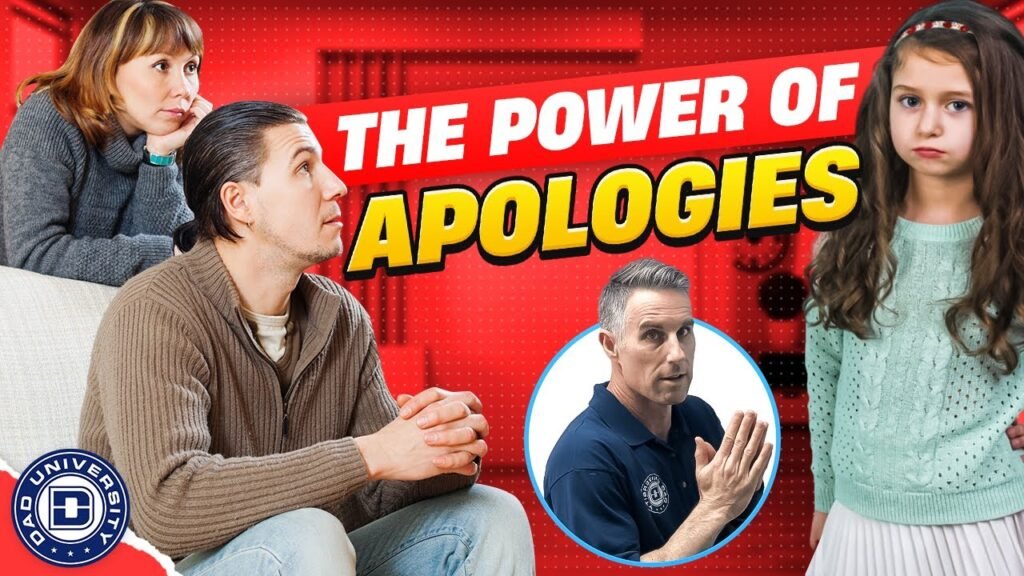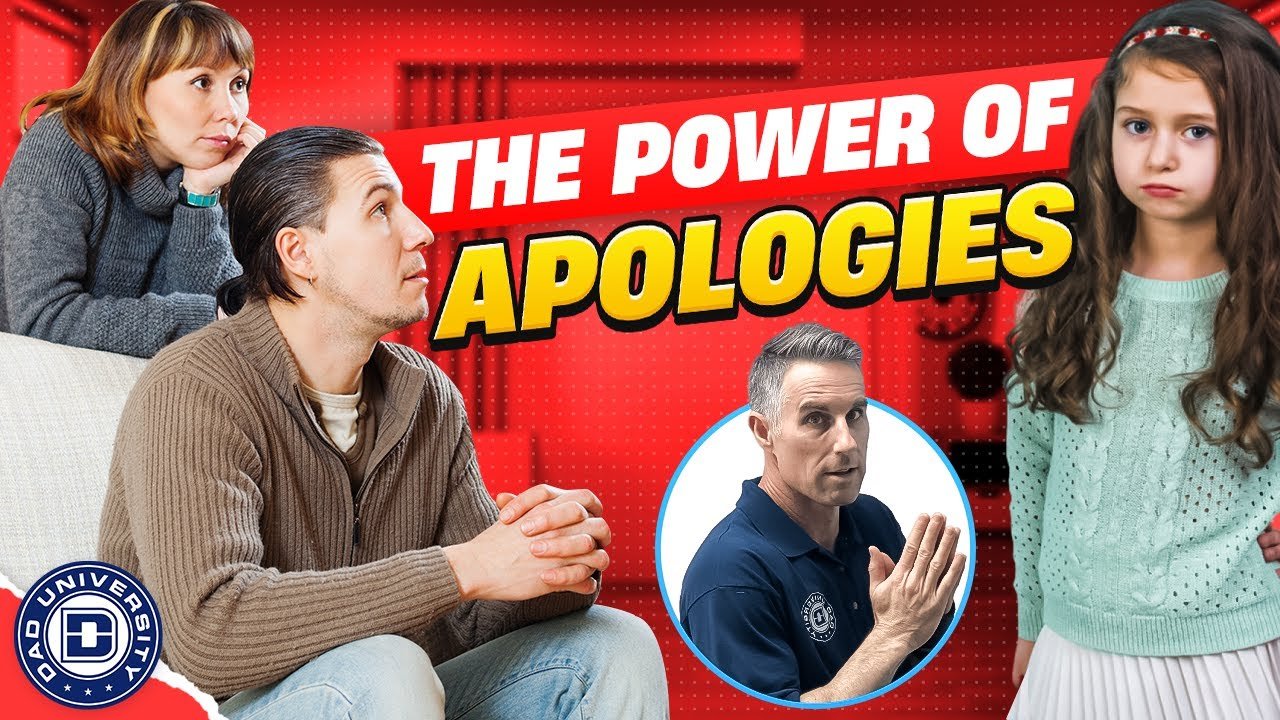Apologizing to your child is an important aspect of parenting that shouldn’t be overlooked. In this thought-provoking video by Dad University, we explore the transformative impact of parental apologies and the significance it holds in building a strong and meaningful relationship with your child. Parenting is a continuous journey filled with love and growth, but it’s natural to make mistakes along the way. By acknowledging and apologizing for those mistakes, you show your child what it means to take responsibility and admit when you’re wrong. Apologizing also demonstrates respect for their feelings, builds trust, and sets a positive example for them to follow. Don’t miss out on this empowering video that might forever change the way you view your role as a parent. Watch now and embark on a path of growth and reconciliation with your child.
Have you ever apologized to your child? If not, you may be missing out on a valuable opportunity. This video by Dad University highlights the importance of apologizing to your child and the positive impact it can have on your relationship with them. While it may feel uncomfortable at first, apologizing shows your child what it means to take responsibility for your actions, teaches them that everyone makes mistakes, and demonstrates respect for their feelings. By apologizing, you also build trust and create a safe environment where your child feels comfortable expressing themselves. Apologizing to your child is a powerful way to strengthen your bond and create a loving and understanding relationship. So, why not give it a try and watch the video to learn more about the transformative power of parental apologies?

Reasons to apologize to your child
Apologizing to your child is an important aspect of parenting that can have a positive impact on your relationship with them. It not only teaches them valuable life skills but also helps to build trust, respect, and open communication. In this article, we will explore four key reasons why apologizing to your child is crucial.
1. It shows your child what to do
Children are great imitators, and they often learn from observing their parents’ behavior. Apologizing to your child when you make a mistake or handle a situation poorly shows them the right way to handle mistakes. For example, if you yell at your child and slam their door when they forget to turn off their computer, apologizing later allows you to acknowledge your wrongdoing and demonstrate that yelling and slamming doors are not appropriate responses. By apologizing, you give your child a positive example to imitate and show them how to take responsibility for their actions.
2. Admitting mistakes is good
Mistakes happen to everyone, including parents. Apologizing to your child teaches them that making mistakes is a normal part of life and that it’s okay to admit when you’re wrong. This lesson encourages emotional growth and resilience in your child. By fixing the situation and making it up to them, you show your child that mistakes can be learned from and that you are committed to making things right. Whether you forgot their baseball game or left their gym clothes at home, apologizing and taking responsibility for your actions reinforces the idea that mistakes should be acknowledged and rectified.
3. It’s respectful
Apologizing to your child is a sign of respect for their feelings and experiences. When a child feels wronged, it’s important to listen to their perspective and acknowledge their emotions. By apologizing, you demonstrate that you value their feelings and take their opinion seriously. Apologizing does not diminish your parental authority; it simply shows your child that their emotions are important and that you are willing to address and rectify any mistakes you have made. For example, if your child feels like you’re not paying enough attention to them and says, “You don’t care,” instead of denying their feelings, apologize and discuss what you can do to show them how much you care. This level of respect fosters a healthy parent-child relationship and encourages open communication.
4. It builds trust
Apologizing to your child creates a safe space for open communication and builds trust. When you acknowledge your mistakes and apologize sincerely, you show your child that they can trust you with their feelings. This trust enables them to express their emotions honestly and seek your support when they make mistakes or face challenges. For example, if you snapped at your daughter after finding out she did poorly on a test, apologizing later and explaining that you were stressed allows her to understand that you recognize your behavior was wrong and that you are committed to creating a trusting and supportive environment. Apologizing helps your child develop a sense of security and confidence in your relationship, paving the way for better communication in the future.
Knowing when to apologize
While it’s important to apologize to your child when you make a mistake, it’s also essential to determine when an apology is necessary. One way to gauge this is by looking for indicators that your actions have had a negative impact on your child. If you yell, say something mean, or act in a way that you wouldn’t want them to, it’s likely a good indication that an apology is warranted. However, not every instance of your child feeling sad or disappointed requires an apology. It’s crucial to help your child understand their own emotions and recognize that not everything is within your control. In situations where an apology is appropriate, it’s essential to be clear, concise, and genuine. Before apologizing, take the time to process your own emotions and ensure that you approach the conversation with your child in a calm and collected manner. Acknowledge their feelings and apologize sincerely, while also reflecting on how you could have prevented the situation in the first place.
Conclusion
Apologizing to your child is a crucial part of parenting that should not be overlooked. It teaches them the value of apologies and sets a positive example for their future relationships. By apologizing, you show your child what to do, admit that mistakes happen, demonstrate respect for their feelings, and build trust. Apologizing fosters a healthy parent-child bond and creates an environment of open communication and emotional well-being. Parenting is a continuous learning process, and every child deserves love, understanding, and the power of a genuine apology. So, why wait? Reflect, apologize, and embark on a path of growth and reconciliation with your child. Apologizing is an empowering act that can forever change the way you view your role as a parent.

